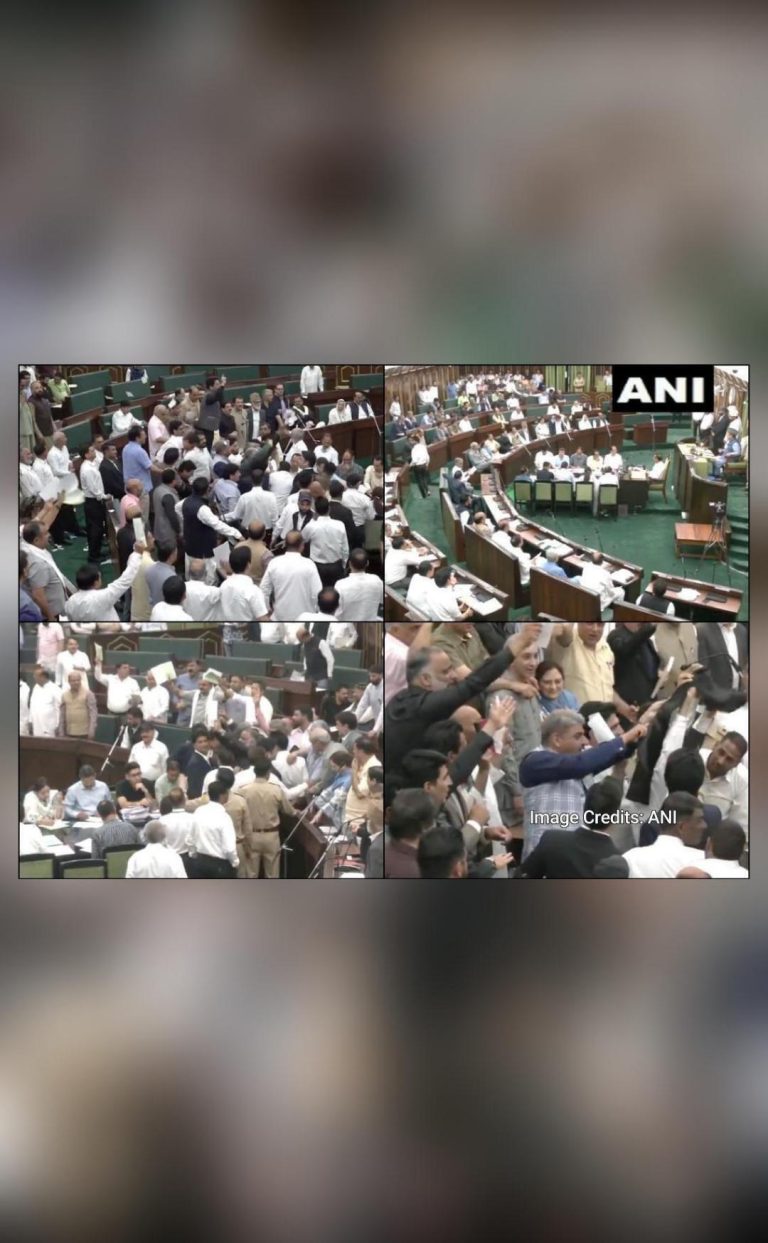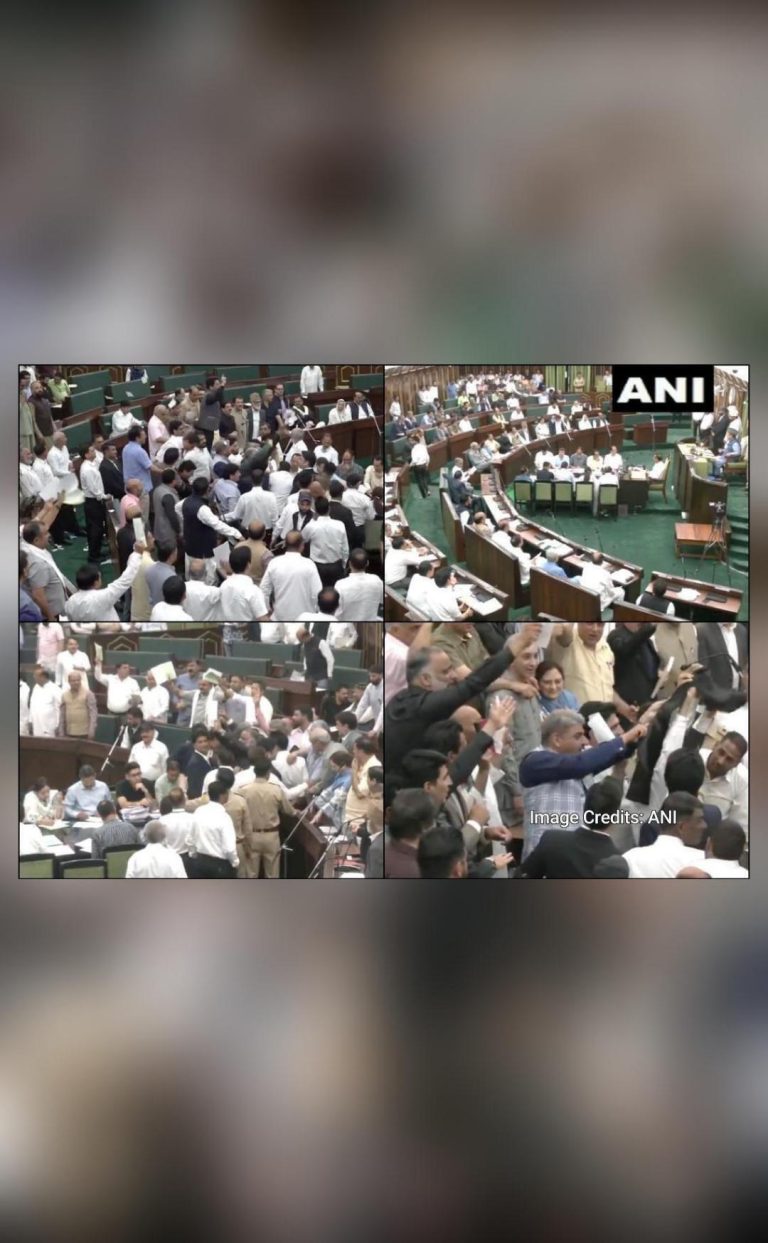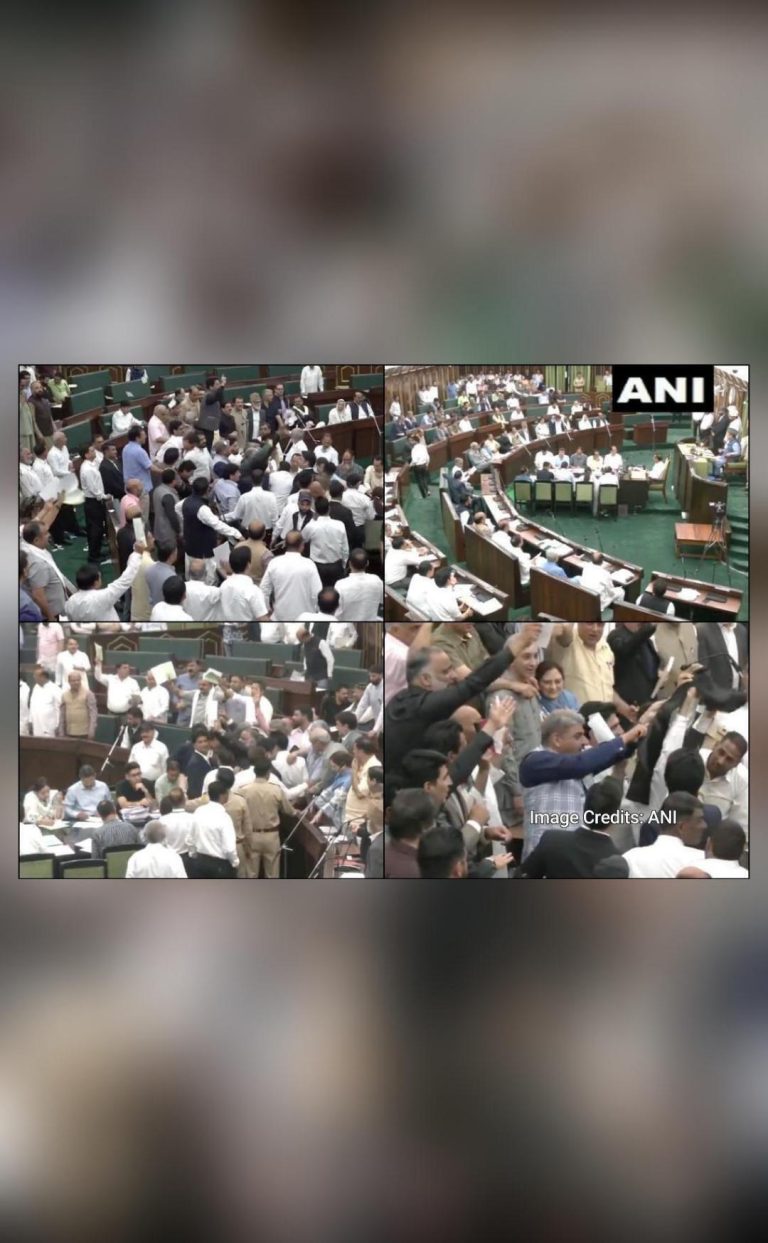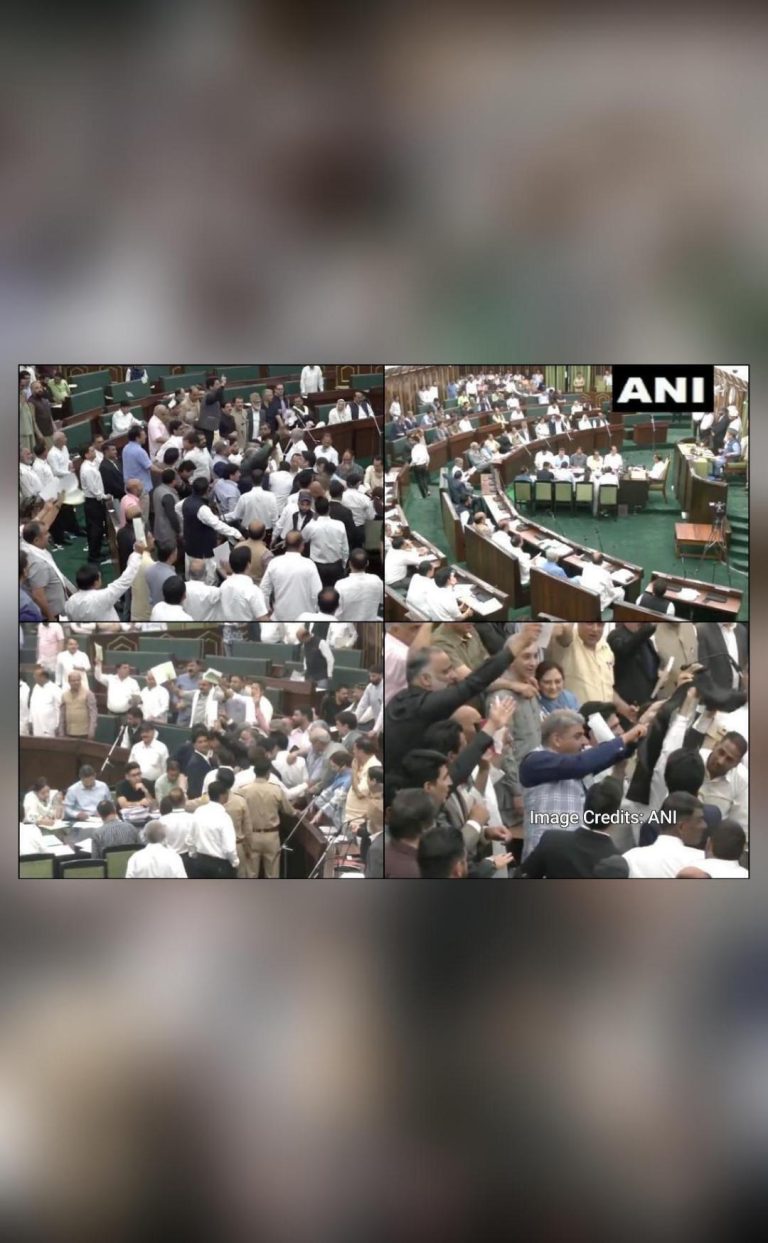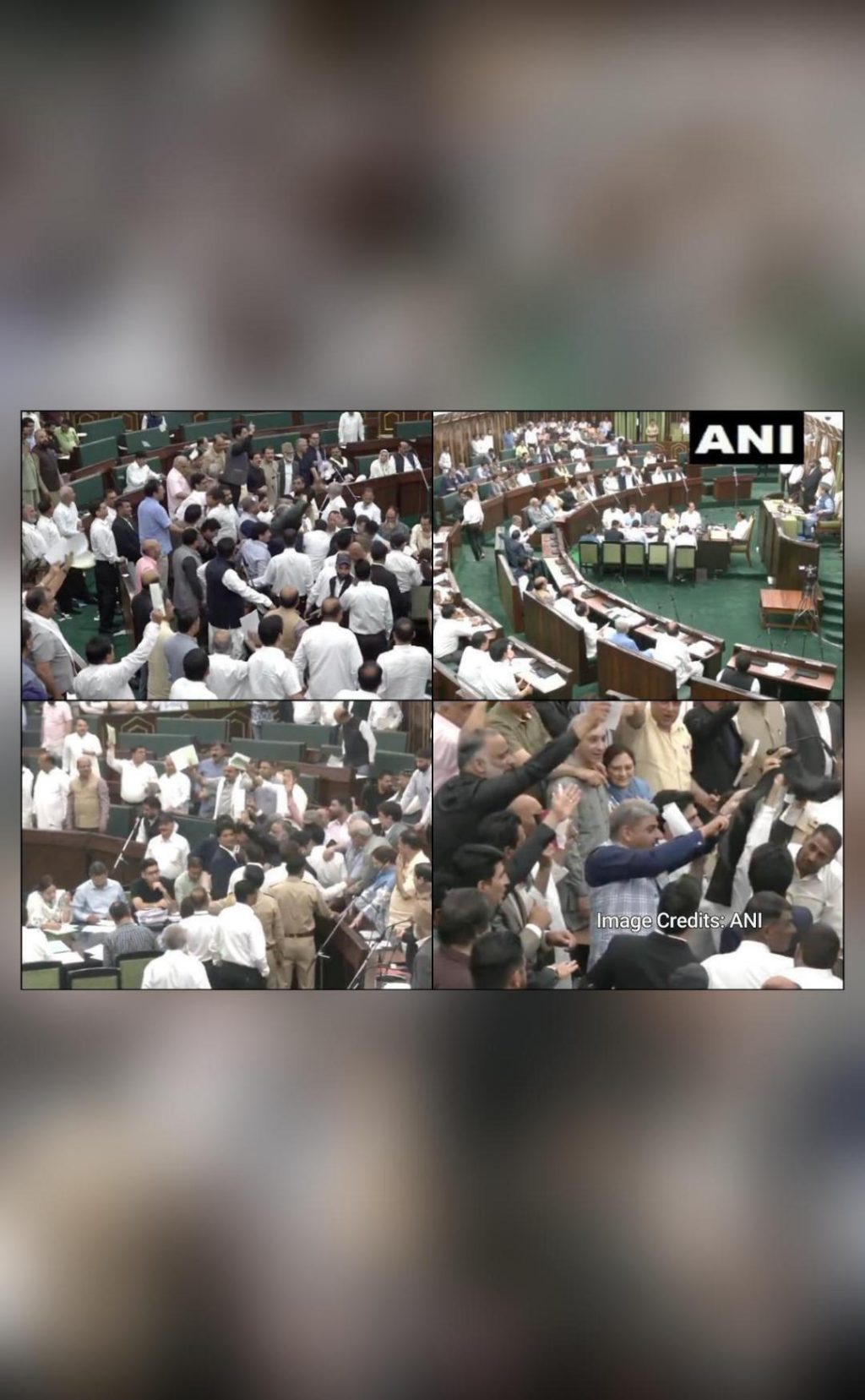
Jammu & Kashmir Assembly adjourned amid uproar over Waqf Act
In a dramatic turn of events, the Jammu and Kashmir Assembly on Monday witnessed a massive uproar after Speaker Abdul Rahim Rather denied an adjournment motion on the Waqf Act, following which the House was adjourned. The commotion was sparked by a heated debate between National Conference (NC) MLAs and Bharatiya Janata Party (BJP) legislators over the contentious legislation.
The trouble began when NC MLAs moved a motion to adjourn the Question Hour to discuss the Waqf Act, which has been a subject of controversy in the state. The Act, which aims to regulate and manage the Waqf properties in Jammu and Kashmir, has been criticized by various stakeholders, including the opposition parties, for allegedly promoting the interests of a particular community.
However, the BJP, which is a part of the ruling coalition in the state, protested against the NC’s move, demanding that the Question Hour be held as scheduled. This led to a heated exchange of words between the NC and BJP MLAs, with both sides refusing to budge from their positions.
The Speaker, Abdul Rahim Rather, tried to intervene, but his efforts were unsuccessful in calming the situation. The NC MLAs were adamant that the Waqf Act be discussed, while the BJP MLAs insisted that the Question Hour should be held as planned.
The situation eventually became so uncontrollable that the Speaker was forced to adjourn the House, bringing the proceedings to an abrupt end. This was not the first time that the Jammu and Kashmir Assembly has witnessed such a tumultuous session, with the Waqf Act being a particularly contentious issue.
The controversy surrounding the Waqf Act has been ongoing for several months, with various parties and organizations expressing their reservations about the legislation. The NC, in particular, has been vocal in its criticism of the Act, accusing the government of attempting to promote the interests of a particular community at the expense of others.
The BJP, on the other hand, has been supporting the government’s efforts to implement the Waqf Act, arguing that it is essential for the management and regulation of Waqf properties in the state. The party has also accused the NC of attempting to disrupt the proceedings of the House and undermine the government’s efforts to implement the Act.
The adjournment of the House on Monday was a significant development in the ongoing controversy surrounding the Waqf Act. It remains to be seen how the situation will unfold in the coming days, with the opposition parties likely to continue their protests and the government determined to push ahead with its plans to implement the Act.
Background of the Waqf Act
The Waqf Act was passed by the Jammu and Kashmir Assembly in 2013, with the aim of regulating and managing the Waqf properties in the state. The Act defines Waqf properties as immovable properties, such as land, buildings, and other assets, that are dedicated to religious or charitable purposes.
The Act also establishes a Waqf Board, which is responsible for managing and regulating the Waqf properties in the state. The Board is composed of members from various religious communities, including Hindus, Muslims, Sikhs, and Christians.
However, the Act has been criticized by various stakeholders, including the opposition parties, for allegedly promoting the interests of a particular community. The NC, in particular, has accused the government of attempting to promote the interests of the Muslim community at the expense of others.
The party has also criticized the Act for being discriminatory, arguing that it favors Muslims over other religious communities. The NC has demanded that the Act be reviewed and amended to ensure that it is fair and equitable for all religious communities.
Impact on the State
The controversy surrounding the Waqf Act has had significant implications for the state of Jammu and Kashmir. The Act has been seen as a symbol of the government’s attempts to promote the interests of a particular community, and has sparked widespread protests and unrest in the state.
The opposition parties, including the NC, have accused the government of attempting to divide the state along religious lines, and have demanded that the Act be repealed. The government, on the other hand, has argued that the Act is essential for the management and regulation of Waqf properties in the state, and has refused to back down.
The controversy has also had significant implications for the state’s economy, with many businesses and organizations expressing concerns about the impact of the Act on their operations. The state’s tourism industry, in particular, has been affected, with many tourists expressing concerns about the safety and security of their travel plans.
Conclusion
The adjournment of the Jammu and Kashmir Assembly on Monday was a significant development in the ongoing controversy surrounding the Waqf Act. The controversy has sparked widespread protests and unrest in the state, and has had significant implications for the state’s economy.
The opposition parties, including the NC, have accused the government of attempting to promote the interests of a particular community, and have demanded that the Act be repealed. The government, on the other hand, has argued that the Act is essential for the management and regulation of Waqf properties in the state, and has refused to back down.
The situation remains volatile, with the opposition parties likely to continue their protests and the government determined to push ahead with its plans to implement the Act. It remains to be seen how the situation will unfold in the coming days, but one thing is certain – the controversy surrounding the Waqf Act will continue to dominate the headlines in Jammu and Kashmir for the foreseeable future.
News Source:
https://x.com/PTI_News/status/1909114084458381436
